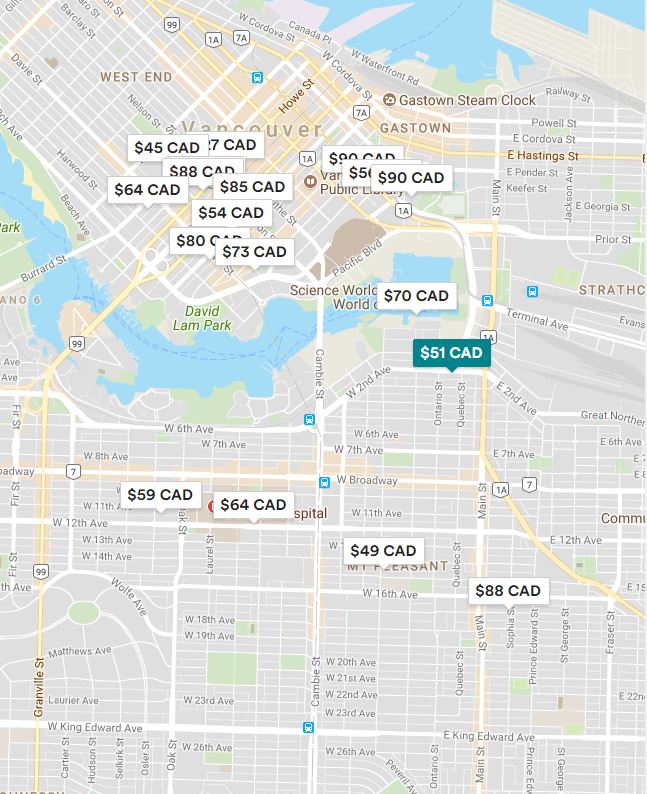More than 100 people turned up at Vancouver City Hall Tuesday night to speak to the city’s proposed new bylaw on short-term rentals (STRs) like Airbnb.

By late Tuesday night, just half of the speakers had had their say, with hearings scheduled to continue Thursday.
The majority of the speakers on Tuesday said they listed through Airbnb, and that the service helped them with their household budget.
One speaker told councillors that while she supported some of the new provisions, she opposed a ban on STRs in basement suites.
“I don’t think they can come into our homes and tell us, ‘you can rent long term, but you can’t rent short term, and you can rent to so-and-so but not so-and-so,’ I don’t believe in that.”
Speaker Octavian Cadabeschi from the group Fairbnb was more critical, saying his group is concerned with the effects Airbnb is having with the housing market.
“We’re definitely not on board with short-term rentals that are being used as commercial properties and ghost hotels that could be used as housing,” Cadabeschi told councillors.

Get breaking National news
WATCH: A Vancouver strata council says it’s having some success with its method of cracking down on short-term rentals.

Under the City of Vancouver’s proposed new bylaw, anyone who wants to list their home on a short term rental site would require a $49 annual licence, which would have to be displayed on the rental listing.
Operators would have to pay income tax on the rentals, and ensure both that their property fits with building safety guidelines and neighbourhood character.
The city’s draft bylaws would also limit short-term rentals in homes that are not a principal residence.
That final element has been a bone of contention for Airbnb, which has strongly argued that its service helps homeowners make ends meet in expensive cities like Vancouver.
- Canadians have billions in uncashed cheques, rebates. Are you one of them?
- Head-Smashed-In Buffalo Jump heritage site enjoys boost after shout out on ‘The Pitt’
- What is Nipah virus? What to know about the disease as India faces outbreak
- Income and wealth gaps increased in 3rd quarter of 2025: StatCan
“It could actually impact Vancouver families and their ability to pay their rent and mortgage in the city,” said Airbnb public policy manager Alex Dagg.
Dagg said the city has done well addressing complicated issues around short-term rentals but focusing on a principal residence designation could have unintended consequences.
“You want to make sure that people who may live and work in Victoria and Vancouver, for example, can still have an opportunity to home share in Vancouver.”
READ MORE: City of Vancouver hopes new Airbnb rules will free up 1,000 rental units
Listing a short-term rental in Vancouver is illegal, but there are still dozens on listings online, causing concern among critics that the services are eating up rental units in a market where the vacancy rate is below one per cent.
And with no official strategy in place yet, some building owners have been trying to implement their own rules. One strata in Yaletown is trying to bring a class action law suit against Airbnb, demanding all listings be removed.
The City of Vancouver has estimated that once implemented, the short-term rental bylaw would legalize about 70 per cent STR rentals for entire homes and virtually all “private room” listings.
It also says the move could free up long-term rental supply by about 1,000 units by banning the short-term rental of secondary homes, secondary suites and laneway homes that aren’t someone’s primary residence.
-With files from Amy Judd and Estefania Duran










Comments